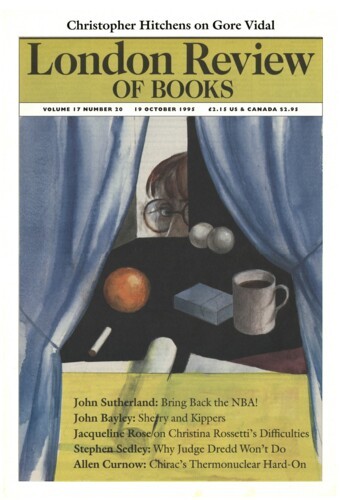War on the Palaces!
Ritchie Robertson, 19 October 1995
When the 23-year-old Georg Büchner died of typhus in February 1837, his acquaintances knew him mainly as a brilliant medical scientist who had just been appointed to a lectureship in anatomy at the University of Zurich, and as a revolutionary whose attempts to stir up revolt among the peasants of his native province of Hesse had obliged him to flee Germany and pursue a career in exile. Of his three plays, only one – his tragedy of the French Revolution, Danton’s Death – had been published, and that only in mutilated form, with its obscenities toned down. His ironic comedy Leonce and Lena appeared only after his death, while Woyzeck, the first – and for some fifty years, the only – working-class tragedy in German, could not even be read until 1879, when it became technically possible for Büchner’s first editor to restore the faded ink of the manuscript. In addition there is an astounding short story, ‘Lenz’, that takes an actual 18th-century dramatist and follows his decline into insanity and atheism; there are scientific texts, including reflections on the order to be found in Nature; extensive notes on his philosophical reading and a body of letters to his family, friends and fiancée. Büchner, it seems, packed a lifetime of intense experience into very few years.’’


